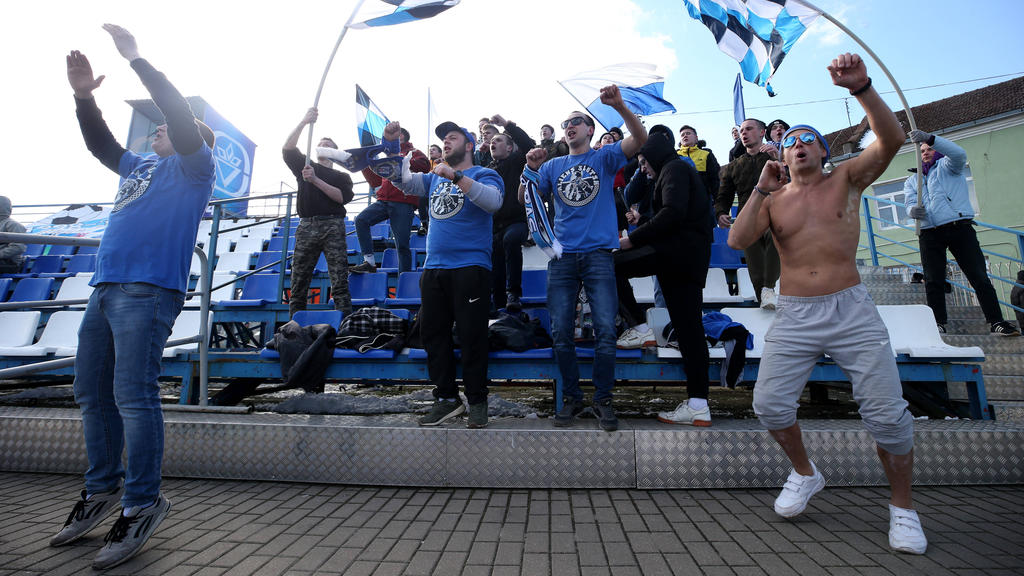Belarus ploughs lone furrow over coronavirus

As the rest of Europe shuts up shop to combat the new coronavirus, Belarus remains resolutely open for business.
Restaurants in the former Soviet Republic continue to serve food, and the country's football league plays on.
Despite being at the door of a Europe grappling with the deadly COVID-19, life goes on here more or less unchecked.
The Belarus President Alexander Lukashenko has dismissed the global health crisis as a "psychosis", and refuses to follow the example of much of the globe by imposing a lockdown.
With less than 100 positive cases and no deaths in Belarus, Lukashenko this week suggested "there shouldn't be any panic" over the virus.
He encouraged his citizens to work on the land.
"There, the tractor will heal everyone. The fields heal everyone," suggested the straight-talking former collective farm director who assumed power in 1994.
On Saturday at an ice hockey gala match he went further, saying that "it was better to die a dignified death than live on your knees".
And so, in stark contrast to all the leagues elsewhere on the European continent, the Belarus championship, like the country's tractors, ploughs on, undeterred.
Saturday's upset win by home side Mozyr over the country's top team BATE Borisov was watched by several thousand fans, and screened live on Russian television.
In the capital, FK Minsk's humble ground was half full for the derby against Dinamo, fans behind both goals ending the game shirtless.
One fan, Igor, 33, told AFP: "Even if we've turned up here, we try to self-isolate, we came by car, we wash our hands 10 times."
He expressed concern at the complacency displayed by some of his fellow supporters.
"It's as if they aren't aware of anything, they go here and there, they're laughing."
Special measures have been put in place nonetheless including thermal cameras to check the temperature of fans as they enter stadia which are disinfected twice a day.
Those precautions satisfied another fan, Ludmila, a 55-year-old school teacher who said that "people who are ill won't be here".
"We've taken all the measures recommended by the Sports Ministry. All those who are in contact with fans... are supplied with gloves," Belarus football federation spokesman Alexsandr Aleinik told AFP.
Despite the apparent lack of urgency, since Tuesday there has been a shift in tone.
In a meeting with the Chinese ambassador Lukashenko asserted that his country was "controlling very seriously" the situation.
And newspapers and state television began to talk about the pandemic which has now killed more than 25,000 people.
But they stick to the line that a general lockdown is not the solution.
Minsk has become quieter over the past few days, over 65s are encouraged to stay indoors, while pupils are authorised not to attend school.
During rush hour, trains on the metro underground are not as full as usual, numerous companies are allowing staff to work from home.
But bars, cafes and shops remain steadfastly open, without any self-distancing protocol advice for their customers.
Ivan, an employee of a new technology company, has been working from home for the past three weeks.
Yet despite that precaution he meets up with his friends every evening "at the gym or in a cafe".
The authorities justify the lax health regime by the strict confinement of those who have tested positive.
Deputy Health Minister Elena Bogdan says that anyone who has the virus or is showing virus-like symptoms is isolated and hospitalised.
And those they have been in contact with are placed in quarantine.
The country's opposition denounces the official approach.
"The authorities are preparing enormous savings on pensions," opposition minister Mikola Statkevitch said caustically in a video message.
He was alluding to the way the coronavirus has taken a devastating toll on the world's older population.
Another reason for the absence of the draconian measures adopted elsewhere, according to analysts: the country is already in economic difficulty creating tensions with its key ally, Russia.
"And with the global slowing down the situation is even worse," observed analyst Artyom Shraibman.
"Seemingly Lukashenko has decided that it would be suicidal to halt the economy," he said.




